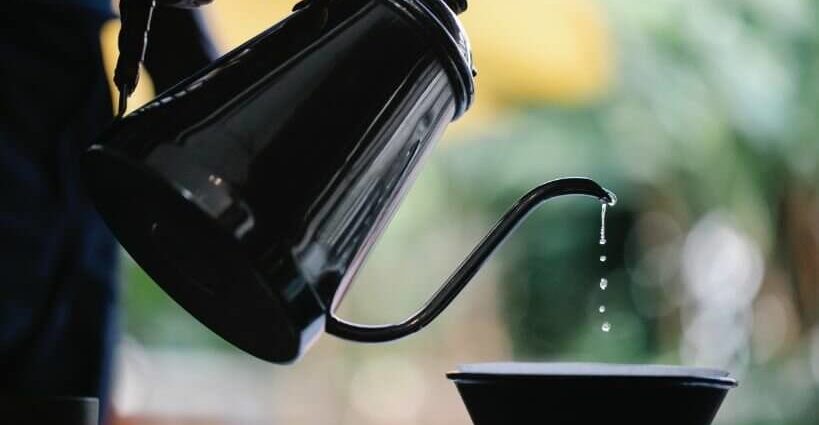Water – the most significant active ingredient in coffee by weight – can make or break the taste of a newly brewed cup. Some beans are much better fit to tough or soft water. A cup of coffee is really 98 percent water Make certain you utilize high quality water to make your coffee taste much better! … It indicates that the quality of water has a considerable function in the taste of coffee.
Making fantastic coffee may be an art, however in the end, everything boils down to science. If you wish to get the very best from your coffee, you require to think about precisely what enters into it, and the majority of that is water.
However what makes water for developing? Here’s what you require to understand.
The link in between great coffee and water
Making a really fantastic cup of coffee needs fantastic beans, a professional roaster, the best grind, and appropriate strategy.
However an often-overlooked aspect of developing coffee in your home is what makes up maybe 99% of the tasty beverage’s weight: Water.
Prepared coffee is in between 98% and 99% water. So it makes good sense that if you begin with bad water, you’re going to wind up with a bad cup of coffee.
When you consider what makes bad drinking water, you tend to consider water with pollutants. In faucet water, things you typically come across consist of chlorine remaining from the water treatment procedure, different metals from old pipes, and microorganisms.
However there’s a little bit more to it than that. The developing itself is a chemical procedure, so the chemical makeup of the water will likewise affect your last cup of coffee. This is where firmness and pH levels can be found in. These all impact the odor and taste of the water, which in turn impacts the taste of your coffee.
Water firmness and pH levels
Even if you have actually never ever looked into the science of it, you have actually most likely become aware of tough water and soft water. Put simply, tough water has a high mineral material, whereas soft water has little to no minerals. These minerals, particularly calcium and magnesium, go into the water naturally as it streams over rocks such as limestone.
House baristas are typically encouraged to prevent tough water, as the mineral material can create chaos with coffee machine. The calcium, as calcium carbonate speed up, is what we understand as limescale.
So is soft water the response? Not as far as a great cup of coffee is worried. It’s these minerals that assist extract taste from your coffee. Without them, you’ll have a flat, lifeless beverage. Water firmness is likewise connected to the pH level. Naturally, soft water is more acidic, which can trigger rust damage to your devices.

Why water firmness matters a lot for developing coffee
Water, on the other hand, has an intricacy all its own – greater levels of ions like magnesium and calcium make it “harder.”
Here’s the secret: A few of the substances in tough water are “sticky” and preferentially get particular substances in coffee when they satisfy in your developing gadget. The more eugenol the water holds on to, for instance, the woodsier the taste of your coffee will be.
Magnesium is especially sticky, so water that’s high in magnesium will make coffee with a more powerful taste (and greater levels of caffeine). Difficult water can likewise have high levels of bicarbonate, which Hendon discovered might cause more bitter tastes coming through.
However while tough water is a little a gamble, depending upon which minerals exist in greater concentrations, soft water appears to have no advantages at all. Its chemical structure “leads to really bad extraction power,” Hendon described.
Soft water typically includes salt, however that has no taste stickiness (for tastes), Hendon discovered. That indicates that you’ll get a much more powerful taste from the exact same beans if you utilize high-magnesium “tough water” in location of softened or distilled water.
The very best water for developing coffee
The SCA has actually established requirements for water when cupping specialized coffee. It must be tidy, odor-free, chlorine-free, with a pH level of 7 and a calcium material of 50-175 ppm. How do you recreate this water for coffee at house?
There are basically 3 things to remember when selecting a water solution: durability of developing devices, sensory quality, and drinking security.
The most crucial thing is understanding what type of water you’re dealing with. By doing this you can make up for any levels that alter too far in one instructions.
Filtered faucet water — A water filter is among the simplest methods to tidy up pollutants, whether it remains in your device or connected to the tap. An excellent filter will eliminate not just sediment however likewise chemicals such as chlorine.
A filter is the very best service if the firmness and pH of your faucet water are close to what you desire.
Mineral water— Apart from the obvious expense and waste included, mineral water is not appropriate for coffee. While every brand name is various (which can be an issue), mineral water tend to be either really high in minerals or really low.
Pure water— Regardless of being the purest choice, pure water is not a great concept for coffee. All of the pollutants are eliminated, however so are the minerals essential for taste. There is likewise a pH problem. Pure water has a pH of 7 at the distilling. This will drop to up to 5.5 after direct exposure to air (5).
Reverse osmosis— This is thought about the height of water purification, however you require to be cautious about what system you utilize. Older RO systems get all of the pollutants, consisting of minerals, which will leave you with water that’s no great or coffee. More modern-day reverse osmosis systems include a remineralization system, which includes back advantageous quantities of magnesium and calcium.
Frequently Asked Questions
Can you microwave water for coffee?
You can microwave water for coffee, however we do not advise it. The primary problem is that this approach does not warm the water uniformly (6), which is a problem for nailing the best developing temperature level.
How typically should I descale my coffee machine?
You need to descale your coffee machine monthly. If you see any white movie on your devices, it’s certainly time to descale.
Why is my coffee bitter?
Your coffee might be bitter for numerous factors. The most typical cause is over-extraction, however it might likewise be because of filthy devices, stagnant beans, or bad water quality.

